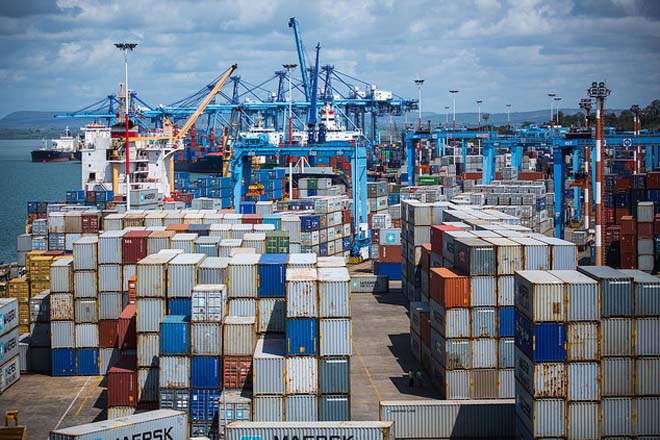By P.K. Balachandran
Assuaging fears that India is set to “impose” an Economic and Technical Cooperation Agreement (ETCA) on Sri Lanka, the Indian High Commissioner in Sri Lanka, Taranjit Singh Sandhu, has said that India is ready to move on the ETCA at a pace Sri Lanka is comfortable with.
“The proposed Economic and Technical Cooperation Agreement is in mutual interest. However, I would like to reiterate that we are ready to move at a pace Sri Lanka is comfortable with,” Sandhu said in his address at the Ninth Annual General Meeting of the Indo-Lanka Chamber of Commerce and Industry (ILCCI) on July 6.
Addressing concerns in Sri Lanka that projects outlined in an MoU signed on April 25 could lead to Indian domination of the Sri Lankan economy, Sandhu said: “Certain sections, who may not be very well informed, unfortunately have been trying to portray that Sri Lankan interests would be harmed when some of these projects take off. Nothing could be further from the truth. These are joint projects."
"These projects bring huge investments and valuable foreign exchange for Sri Lanka. They create several thousands of direct and indirect jobs. These projects only bring benefits to Sri Lanka. You are practical and pragmatic. We would like you to project the right message in your interactions.”
Export Growth
Delineating Sri Lanka’s gains through economic links with India, the envoy said that Sri Lanka’s share of exports under the 2000 India-Lanka Free Trade Agreement increased from 16% in 2000 to more than 65% in recent years. And the majority of Sri Lanka’s exports to India are through FTA.
On the other hand, the share of FTA items in India’s exports to Sri Lanka increased from 9% in 2000 to just 13% in recent years. The majority of India’s exports to Sri Lanka are outside the FTA. The facts and figures show FTA has indeed been beneficial to Sri Lanka, he pointed out.
The High Commissioner noted with happiness that the Sri Lankan Airlines is currently the largest foreign carrier to India. India also contributes significantly towards Sri Lankan tourism, with an estimated 400,000 Indians visiting Sri Lanka annually.
Sri Lanka has been providing Maintenance Repair and Operations (MRO) services to Indian airline companies.
Similarly, Colombo Dockyard has been supplying vessels to India and has also been actively engaged in ship repair business with India. More than 70% of Colombo Port trans-shipment is India-related, an important lifeline for Colombo Port, Sandhu noted, to show that India-Sri Lanka economic relationship is not a one-way street.
Chamber’s Role, Perception Matters
Highlighting business chambers’ role in creating perceptions, Sandhu said: “Perceptions matter in everyday life. It matters the most in business. Your perceptions about the economy can have a powerful impact on the economy itself. Your paintbrush can color others’ vision. This also means that you have a huge responsibility.”
The chamber could play a key role by disseminating information on investment and trading opportunities, highlighting the positives and also bringing to the High Commission’s notice the negatives so that these could be attended to.
“You are not just a collection of Indian and Sri Lankan companies. You are one among those few groups who know India and Sri Lanka equally well. You have seen and experienced both yourselves. I consider your ground knowledge as an important tool to bridge the asymmetry of information,” the envoy said.
“If there are positive stories, let the world know. If there are not-so-positive stories and you are in difficulty, let us know. We will be happy to provide all support to resolve it,” he added.
Stressing the need to look head imaginatively, the envoy said: “As a government, our aim is to create tangible and sustainable opportunities for the benefit of the people in both countries. We need to look ahead. We need to dream high. What we can achieve together is limited only by our collective imagination.
buy zydena online buy zydena online no prescription
”
Conventional, Non-conventional Energy
Sandhu pointed out that India-Sri Lanka development partnership stands at US $2.6 billion as on date.
“We are ready to strengthen our development partnership further based on Sri Lanka’s needs,” the envoy assured and recalled the MoU signed in April on specific projects in sectors, such as energy, power, roads, ports, and railways.”
Sandhu said that India intends to make substantial investments in Sri Lanka in conventional and non-conventional energy in the days ahead.
“Considering that LNG is a cheaper and cleaner fuel, we are sharing our expertise and skill set with Sri Lanka to facilitate the process of gasification, of the Sri Lankan economy. We also see huge potential in Sri Lanka for wind and solar energy as well. India has made rapid advance in solar technology and we are ready to share it with Sri Lanka.”
Reforms in India
Delineating some of the landmark changes taking place in India, Sandhu referred to the all-India Goods and Services Tax (GST) and said: “Reforms are sweeping across India. The impact of the reforms has made India, a land of limitless possibilities and endless opportunities.
The launch of Goods and Services Tax from 1 July is a milestone in the economic history of India. The creation of ‘One Nation; One Market; One Tax’ is expected to generate several positive externalities. Economists are predicting an addition of 2% growth in India’s GDP from the roll out of GST.”
India’s growth is not in the interest of India alone, the envoy said.
“As my Prime Minister has said, our friends and partners, especially our neighbors, have the first claim on the fruits of India’s growth. Together we progress. India would like to make Sri Lanka’s onward journey faster and easier.”
India will move on ETCA at a pace set by Lanka: envoy

